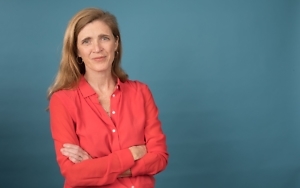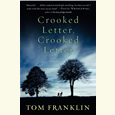Great Expectations
Former UN ambassador Samantha Power considers the reality of imperfect outcomes
Part captivating study in modern foreign affairs, part love letter to her family and working mother tell-all, former U.N. Ambassador Samantha Power’s The Education of an Idealist: A Memoir could be described as The Liar’s Club meets Madam Secretary. It’s rare to find a memoir, especially from a public official, that weaves disparate aspects of a life as effectively as this one does.

The book covers Power’s early personal challenges, including the loss of her father (first to distance, then to alcoholism), a battle with anxiety, and the trials of infertility, but Power’s central struggle is the one she faced professionally as she tried to reconcile the capacity of the United States to intervene in crises around the world with its frequent unwillingness to do so. She takes readers to the front lines of U.S. decision-making on international issues, where political calculation and domestic interest too often roll right over idealistic aims.
Born to Irish parents, Power grew up on the outskirts of Dublin. Her mother became a physician, and her father was an underemployed dentist who preferred time at the pub to seeing patients. Ireland didn’t allow divorce, and in order to get away from her alcoholic husband, Power’s mother emigrated to Pittsburgh in 1979, bringing along Power, then 9, and her brother Stephen.
Power ultimately graduated from Yale and began her career as a war correspondent covering the Serbian slaughter of Bosnian Muslims. That experience ignited her humanitarian drive and led her in 2002 to write A Problem from Hell: America and the Age of Genocide, a Pulitzer Prize-winning book about the failures of U.S. leadership in the face of genocide around the world. She attended Harvard Law School and worked as a foreign policy advisor to Sen. Barack Obama. After he was elected president, she became his human rights advisor and, later, U.N. ambassador.
Power writes passionately and persuasively, and with a journalist’s clarity, about the ways in which the United States has effectively intervened around the world when no other country could. For example, the extensive U.S.-led effort to fight the deadly Ebola virus outbreak in West Africa ultimately succeeded in making those countries Ebola-free in 2016.
 Power’s book has been criticized for what it doesn’t include — the crisis in Yemen and Israel’s attacks on Gaza, to name just two — but her brutal honesty about what can be viewed as other American failures goes a long way toward mitigating those sins of omission. She writes that when Syrian dictator Bashar al-Assad unleashed large-scale chemical attacks on his own people in August of 2013, thereby crossing the “red line” President Obama had warned against, the White House issued the kind of empty statements “I would have skewered in my past life.”
Power’s book has been criticized for what it doesn’t include — the crisis in Yemen and Israel’s attacks on Gaza, to name just two — but her brutal honesty about what can be viewed as other American failures goes a long way toward mitigating those sins of omission. She writes that when Syrian dictator Bashar al-Assad unleashed large-scale chemical attacks on his own people in August of 2013, thereby crossing the “red line” President Obama had warned against, the White House issued the kind of empty statements “I would have skewered in my past life.”
On Syria, Obama flirted briefly with air strikes, then got cold feet and ultimately asked for congressional approval for military intervention, which he never got. Even the no-fly zone that Power and others pushed failed to get traction with the then-president. “Those of us involved in helping devise Syria policy will forever carry regret over our inability to do more to stem the crisis,” Power writes. “And we know the consequences of the policies we did choose. For generations to come, the Syrian people and the wider world will be living with the horrific aftermath of the most diabolical atrocities carried out since the Rwandan genocide.”
But even as Power criticizes Obama’s inactions on Syria and other issues, she manages to do so with what seems to be a genuine and unrelenting faith in his character and — this helps — an ability to be self-deprecating. She notes that he sometimes told her, “You get on my nerves,” and how, when he thought Power was becoming too self-righteous in a meeting, he once snapped, “We’ve all read your book, Samantha.”
As any idealist might when faced with layers of bureaucracy and diplomatic interests that get in the way of doing good, Power sometimes began to lose faith in the process, to question whether she should continue to try to make a difference. Ultimately, she stayed, convinced that the perfect is the enemy of the good and that when she couldn’t move the needle in one place, she’d try in another.
Power’s 592-page tome is, mercifully, as readable as it is inspiring, and it should be required reading for all activists — or anyone, for that matter — who wants to make a difference in a complicated world.

Liz Garrigan is the former editor of the Nashville Scene and Washington City Paper. She lives in Bangkok, Thailand.


